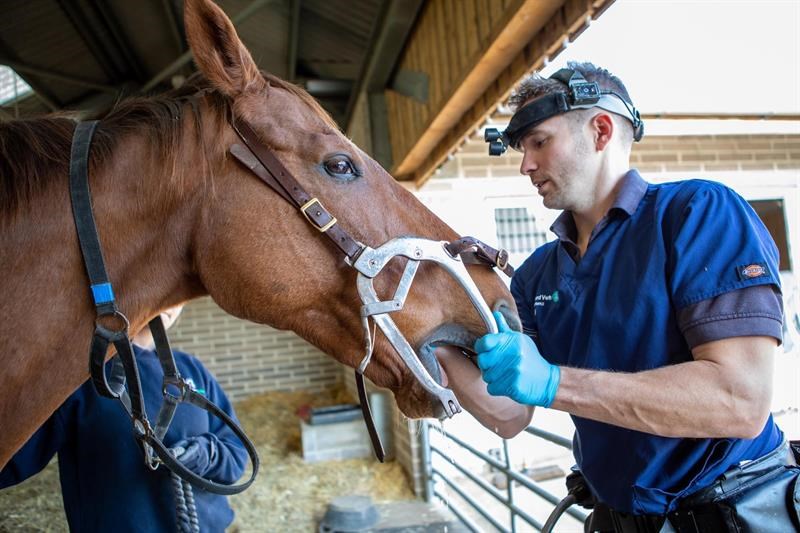Sam Bescoby is an Equine Dental Vet and looks after the horses’ teeth at World Horse Welfare’s Glenda Spooner Farm Rescue and Rehoming Centre. He’s very kindly put together some advice on who should check your horse’s teeth, what to expect during a routine dental examination and what to look out for as signs of dental pain in horses
Sam says “Firstly, it’s really important to make sure you use either a Veterinary Surgeon or a qualified Equine Dental Technician (EDT) to check your horse’s teeth. Untrained practitioners can do a lot of damage and will often miss the early signs of problems developing. In the UK, anyone can rasp a horse’s mouth so it is imperative that you do your research and find someone qualified. Speak to your vet or find an EDT at www.baedt.com or www.wwaed.org.uk.
“There are a number of steps which should take place during a routine dental examination, from a detailed examination of the horse’s head to making and carrying out a treatment plan – you can find out exactly what’s involved at www.worldhorsewelfare.org/teeth
“There can be various signs of dental pain in horses, including quidding (chewed food is dropped or spat back out), weight loss, bad breath, reluctance to be touched around the head (or accept the bit, if ridden), swellings of the jaw or face, or nasal discharge (often yellow and on one side only). However, it’s very common for horses to show no outward signs of dental pain at all – which is why regular routine examinations are so important!
“Horses should have a routine dental examination every six months if under the age of eight years old or over eighteen and every twelve months between those ages, unless your dental practitioner advises otherwise. Preventative treatment can resolve many common dental problems before they become major issues, so regular checks really are essential for your horse’s wellbeing.”
Read Sam’s advice in full at www.worldhorsewelfare.org/teeth
